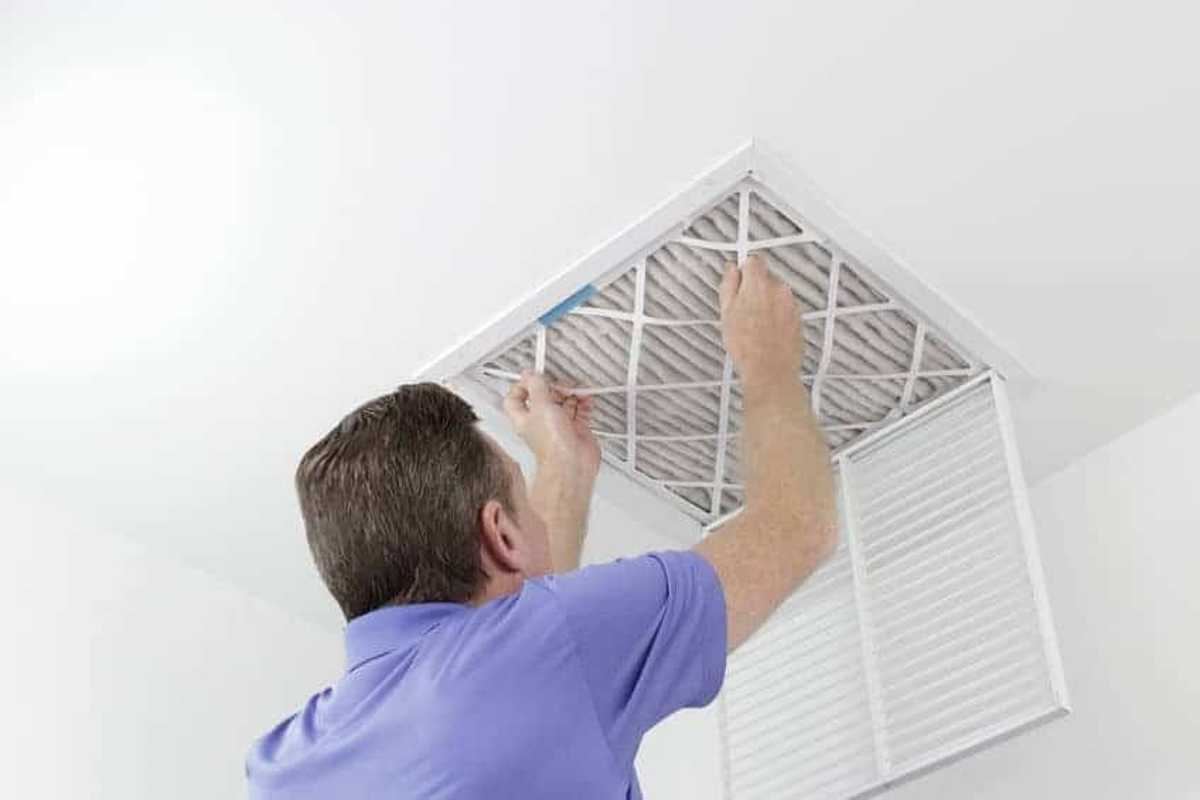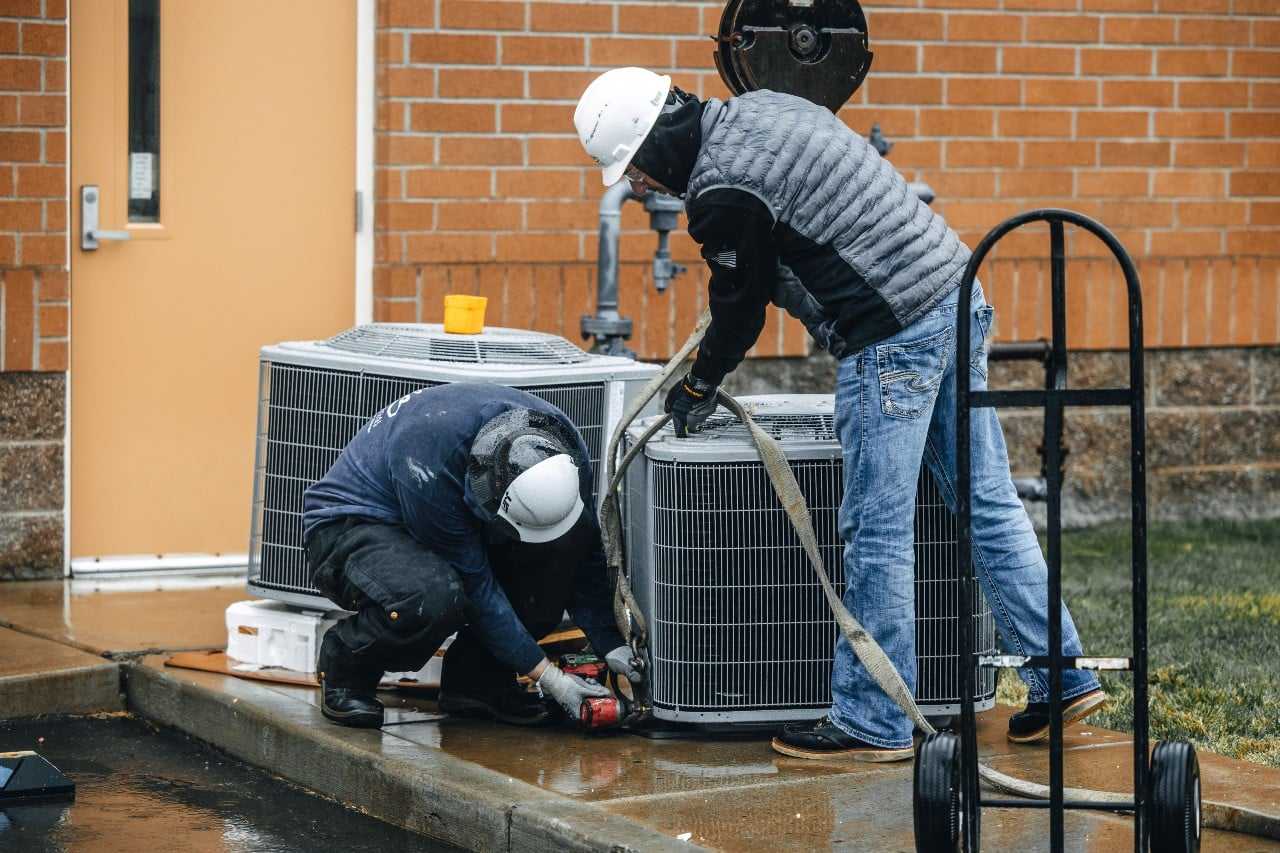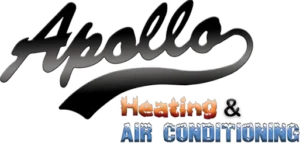HVAC filters are an important home component, the part of your HVAC system that removes any air impurities. With that in mind, it’s important to replace these filters regularly, especially if it’s been a while. 
You may be surprised to know that there are multiple types of HVAC air filters. It’s best to know as much about them as possible in order to make the best decision on which one to choose.
Flat-Paneled Fiberglass Filters — This is a popular HVAC air filter for its affordability. However, according to MERV ratings, this disposable type of HVAC filter is a low-end product. It’s widely considered ineffective at improving your indoor air quality despite being able to trap dust and debris.
What is a MERV Rating?
An air filter’s minimum efficiency reporting value, or MERV rating, measures how effectively the filter stops dust and other contaminants from passing through the filter and into the air stream. Filters with higher MERV ratings trap small particles more effectively than filters with lower MERV ratings.
In general, filters with a rating of MERV 16 or below are considered to be HVAC-system-grade filters for residential, commercial and general hospital use. MERV 17 through MERV 20 filters are usually used in surgical operating rooms, clean rooms and other areas that require absolute cleanliness.
However, when you do select the right filter for your HVAC system, higher is not always better. Using an air filter with a MERV rating higher than what your furnace or air conditioner manufacturer recommends can actually impair its performance.
Pleated Media Filter
The pleated media filter has a MERV rating that ranges between 5 and 13, meaning it can trap mold spores and pet dander. The pleats are designed to increase the filter’s surface area and increase its efficiency. Its air filtration efficiency is still quite low, however, though it does provide less airflow resistance and can suppress fan noise.
Electrostatic Filters
Electrostatic filters are even better at filtering allergens compared to pleated filters. An Electrostatic filter uses small cotton and paper fibers to generate a static charge when in use. This charge attracts the smallest airborne particles like a magnet, stopping them from circulating throughout your home. You’ll find Electrostatic filters in disposable or washable types. With the Electrostatic filter, you might take a bigger hit in your pocketbook as this type of filter is more expensive than a fiberglass and a pleated filter. It is your best choice, however, if allergen removal is your top priority.
HEPA Filter
HVAC replacement companies typically recommend HEPA filters because they can provide the highest protection level when it comes to airborne particles. This filter is capable of capturing small microns, and has a MERV rating between 17 and 20, meaning it can trap tobacco smoke and bacteria. Installing this filter, however, can be challenging, as modifications from a contractor will likely be necessary for this filter to work with your HVAC system.
Reusable Air Filters
Reusable air filters can be washed for continued use, making a complete replacement unnecessary. Keep in mind, however, that reusable air filters have a very low MERV rating – between 1 and 4 – and can also attract mold and mildew growth if you install them before they’re dry. 
Changing Your Filters
One of the most important things you can do to take good care of your HVAC system is to simply change your air filter on a regular basis. This keeps everything working properly and also helps to keep your energy bills low.
Unfortunately, it is a task that is easily forgotten by many homeowners for months at a time, leading to higher energy bills and future maintenance issues. But how often should you change your air filter? How often should you change your furnace filter? Well, it depends.
Here are some general rules and recommendations to help you figure out what time frame is best for your HVAC system.
It is generally recommended you change your air filter in your home every month when using a less expensive fiberglass filter. High-end pleated filters can be effective for as long as six months, but these guidelines assume average use and do not take into account the size and type of filter.
As a universal rule, you should replace pleated air filters and furnace filters in your home every 90 days. Going any longer than this risks more dirt, dust, and allergens being trapped, which will eventually clog the filter and decrease its effectiveness.
Consider the following situations when determining how often you should change your HVAC filter. If any of these scenarios are true for you, you are better off changing your air filters more frequently.
Does Anyone in Your House Have Allergies and/or Asthma?
Indoor air quality is just as important as outdoor air quality, according to the Allergy and Asthma Foundation of America (AAFA). While outdoor air can contain harmful pollution, indoor air can actually be worse than outdoor air, so says the AAFA.
If someone in your home is an asthmatic or allergy sufferer, they are much more sensitive to airborne particulates than those who do not have these conditions. If you do have asthma or allergy sufferers at home, you will want to change your HVAC filter every six weeks to maintain excellent indoor air quality.
Do You have Younger Children?
When you have young children in your home, you want to be sure your indoor air quality is at its best. In order to maintain good air quality and keep your house clean, you will want to replace your filter at a minimal interval of every two or three months.
Do You Have Pets?
If you are a cat or dog owner you probably already know that odor can build up after time and that shedding is at its worst during the change of seasons. With cats or dogs in the house, you will want to swap out your filter every 2 months, especially during seasonal changes.
Apollo Offers a Wide Variety of Services for Your HVAC System
Apollo will deliver a world-class HVAC system that is an ideal fit and gives you an ideally comfortable environment. Our technicians are the most qualified and experienced in the Tri-Cities.
Contact your premier source for heating and air conditioning in the Tri-Cities, Apollo Heating and Air Conditioning, at (509) 396-COLD (2653) or submit a service request here.
